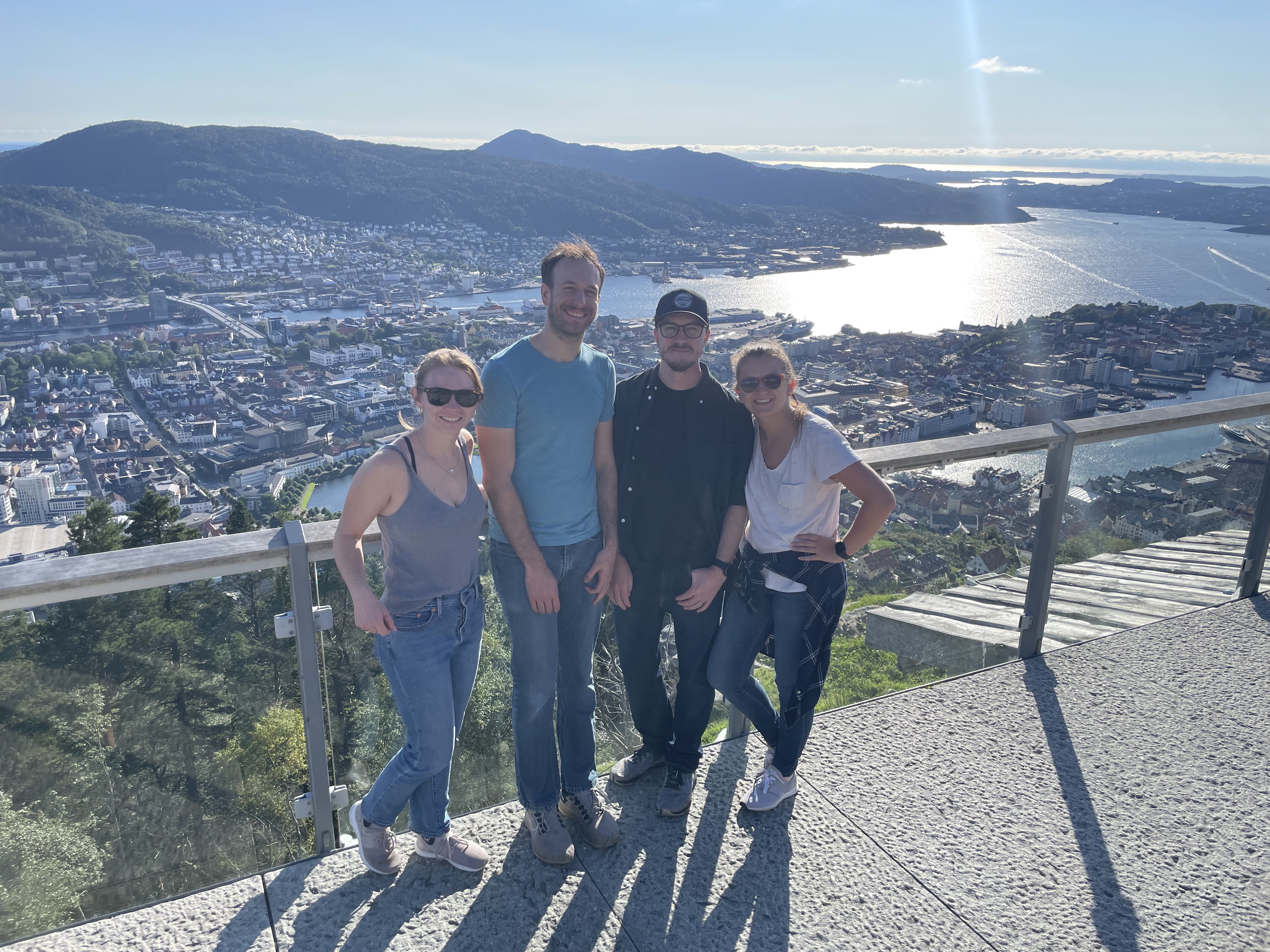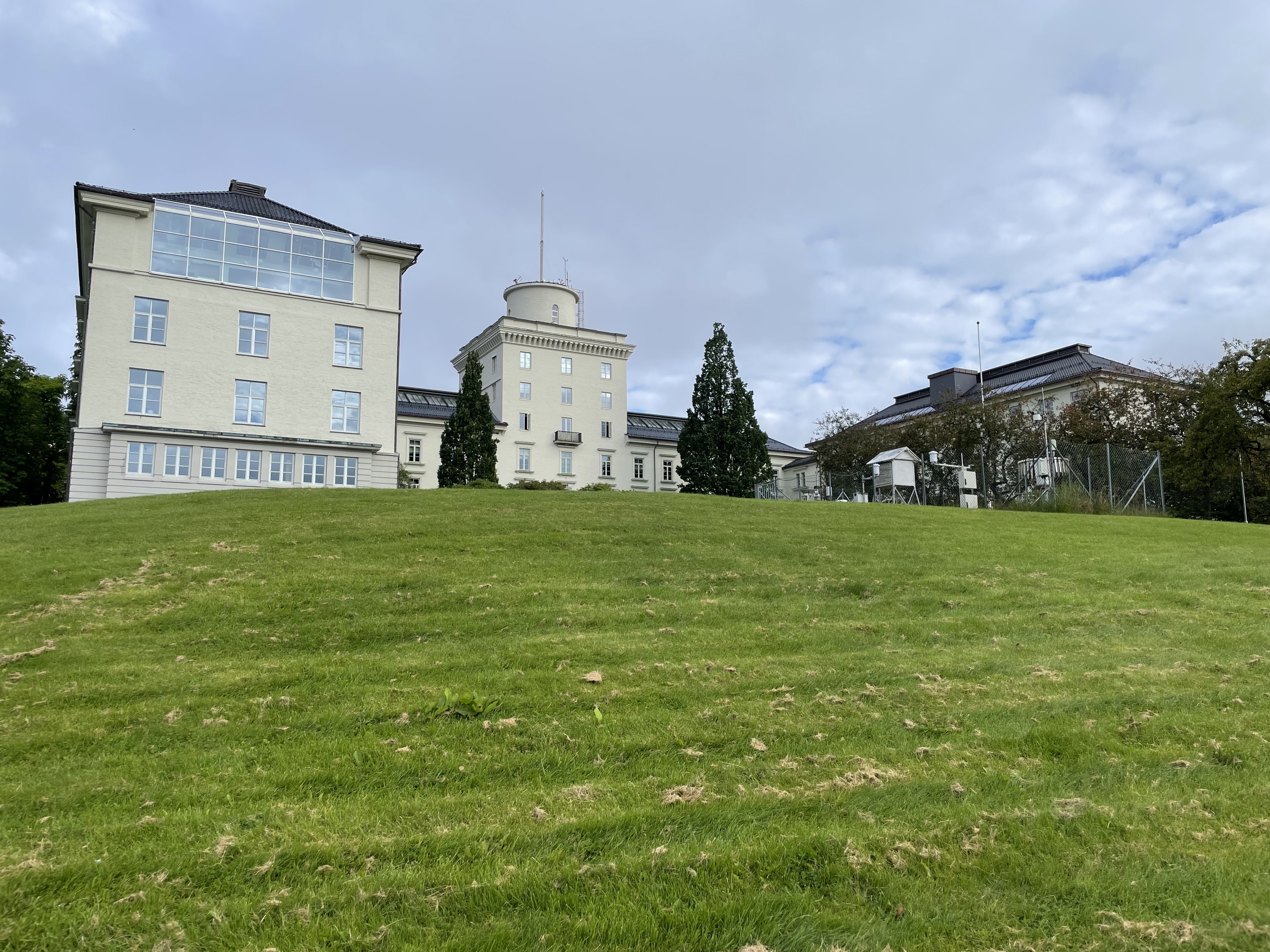BLISS Team Attends 2023 ISARRA Conference in Bergen, Norway
Several members of the BLISS (Boundary Layer Integrated Sensing and Simulation) team recently traveled to Bergen, Norway, to participate in the 2023 International Society for Atmospheric Research using Remotely piloted Aircraft (ISARRA) conference. This gathering brought together researchers and engineers from around the world to share their latest findings and expertise in Uncrewed Aerial System (UAS) applications and development.
BLISS Representation
Our team was well-represented at the conference, with the following members in attendance:
- Francesca Lappin
- Elizabeth Smith
- Tyler Bell
- Josh Gebauer Additionally, Tony Segales, although unable to attend in person, contributed a talk that was delivered on his behalf.

Sharing Our Work
All attending BLISS team members presented their research, showcasing our group’s contributions to the field of atmospheric science using UAS technology. These presentations provided an excellent opportunity to share our findings, receive feedback from peers, and explore potential collaborations with other institutions.
A Pilgrimage for Meteorologists
Bergen holds a special place in the history of meteorology as the birthplace of modern weather forecasting. Our team was thrilled to visit the Geophysical Institute at the University of Bergen, where the Bergen School of Meteorology and the Norwegian Cyclone Model were developed. This visit offered a unique opportunity to connect our current research with the foundations of our field.

Atmospheric Anomalies
Interestingly, the team experienced unusually clear skies during their visit, which is atypical for Bergen. This meteorological anomaly provided a stark contrast to the city’s usual weather patterns, offering our researchers a different perspective on the local climate.The team also noted the extended daylight hours due to Bergen’s northern latitude. While this phenomenon was fascinating to experience, it did present some challenges in adjusting to the local time, particularly with jet lag
Looking Ahead
The ISARRA conference provided valuable opportunities for our team to:
- Share our latest research findings
- Learn about cutting-edge developments in UAS technology and applications
- Network with international colleagues and potential collaborators
- Gain new perspectives on atmospheric research techniques
ISARRA 2024: Coming to Oklahoma
We’re excited to announce that the ISARRA conference will be hosted in Oklahoma in 2024. This upcoming event will include a flight week deployment, offering participants hands-on experience with UAS in field conditions.
BLISS team members are heavily involved in the planning of ISARRA 2024, leveraging our expertise and local knowledge to create an enriching experience for all attendees. This involvement underscores our commitment to advancing the field of atmospheric research using UAS and fostering international collaboration.
The opportunity to host ISARRA 2024 in Oklahoma will allow us to showcase our research facilities, demonstrate our UAS capabilities in our home environment, and further strengthen our relationships with the global atmospheric science community.
We look forward to incorporating the insights gained from the Bergen conference into our ongoing research at BLISS, as well as applying them to the planning of ISARRA 2024. These international collaborations and experiences continue to shape our work and drive innovation in atmospheric science.
Stay tuned for more updates on our research progress and details about the upcoming ISARRA 2024 conference in Oklahoma!